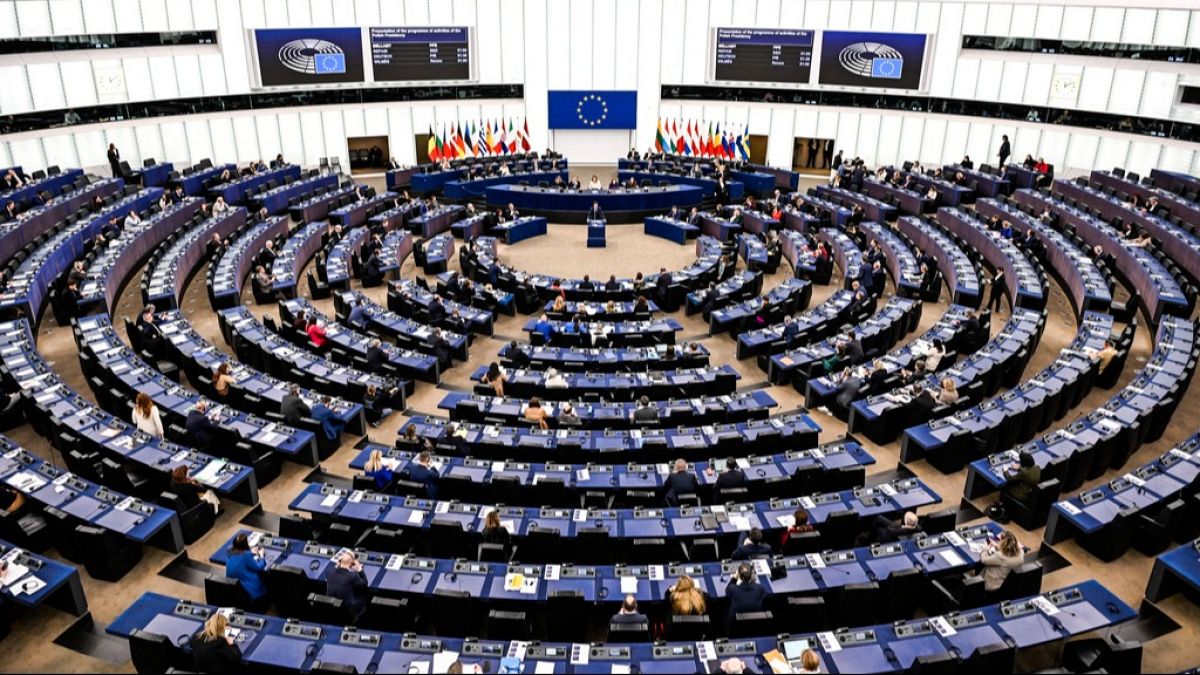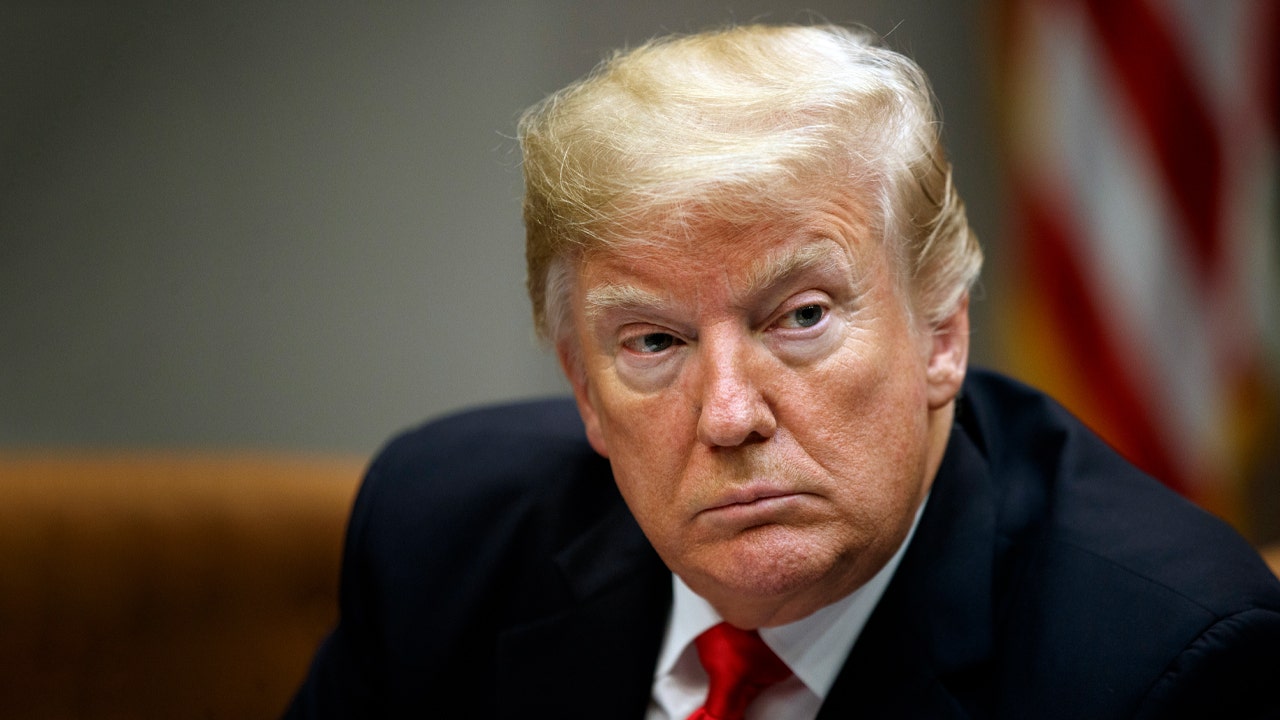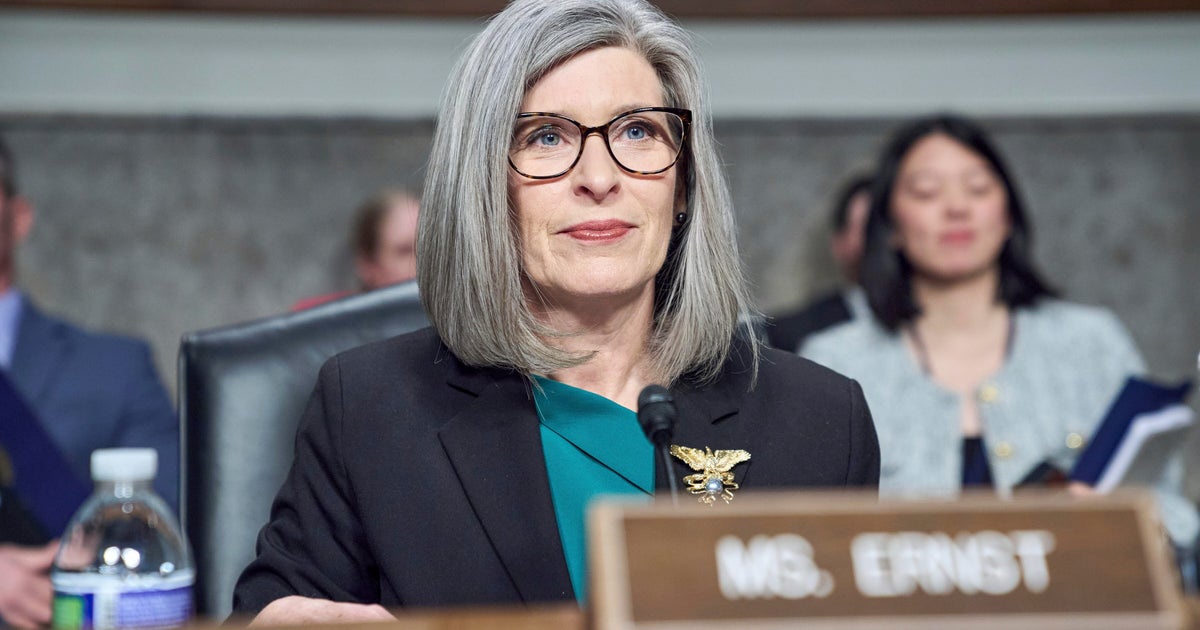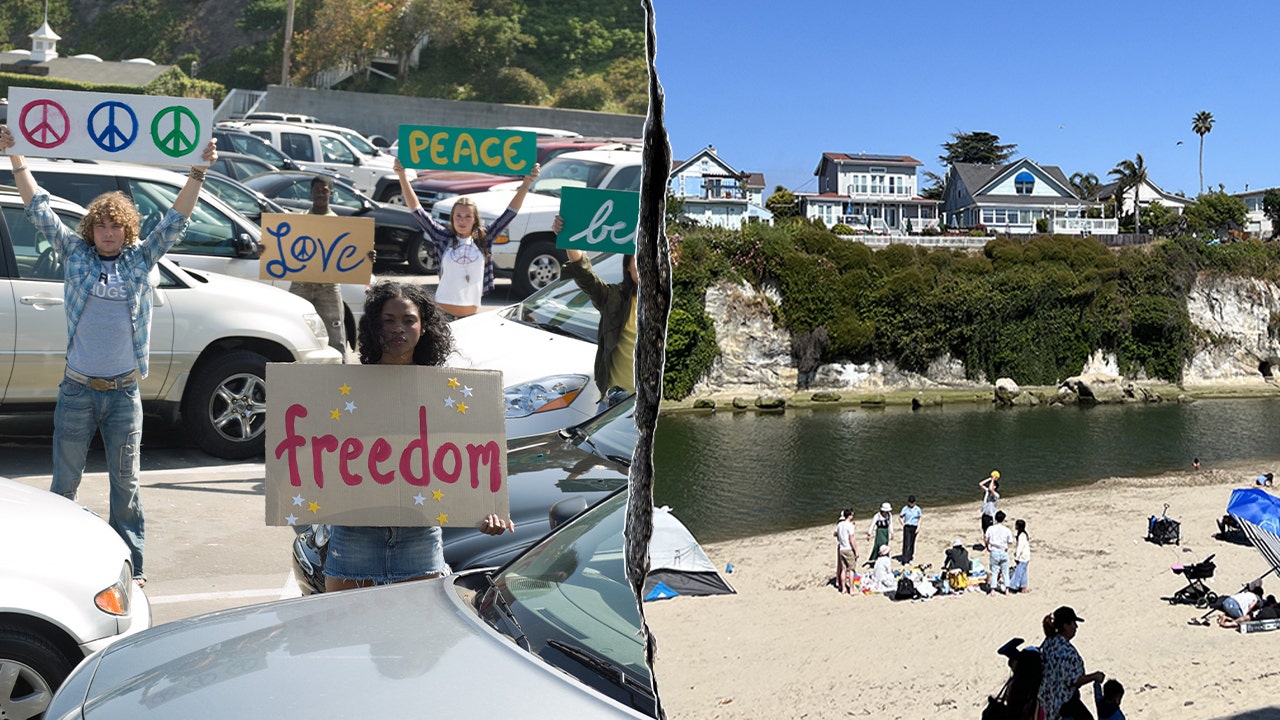World
The European Green Deal faces its moment of truth: nature restoration
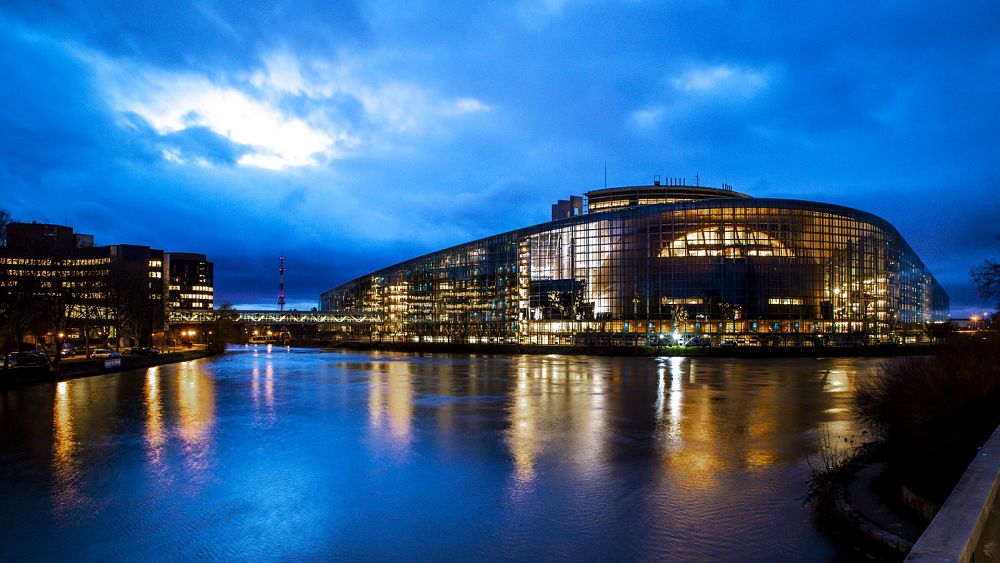
The Green Deal, described by Ursula von der Leyen as “Europe’s man on the moon moment,” is about to undergo a litmus test.
On Thursday morning, members of the European Parliament’s environment committee (ENVI) are set to convene and vote on the Nature Restoration Law, a draft piece of legislation that has become the prime target of an extreme opposition campaign.
The controversy around the law has taken Brussels – and now Strasbourg – by storm, pitting a coalition of conservatives, farmers and fishers against left-wing parties, NGOs, scientists and, surprisingly, the private sector.
The backlash has reached such intensity that the first point on Thursday’s agenda will ask MEPs whether to reject the legislation in its entirety, without further amendments or consultations. Two affiliate committees, agriculture (AGRI) and fisheries (PECH), have already struck down the text, raising the stakes even higher for what is expected to be a knife-edge decision.
How exactly did nature restoration become so contentious?
The law currently on the table was first presented by the European Commission in June 2022. The text, referred to as the “first continent-wide, comprehensive law of its kind,” aims to restore habitats and species that have been degraded by human activity and climate change.
It sets out legally-binding targets in seven specific topics, from pollinating insects to marine ecosystems, that put together should cover at least 20% of the European Union’s land and sea areas by 2030. (The target was later boosted to 30% in order to align the bloc with the landmark deal struck at COP15 in December.)
The Nature Restoration Law, like all pieces that make up the European Green Deal, is ambitious and far-reaching, reflecting the extent of the problem it tries to tackle: 81% of European habitats are in poor status, with peatlands, grasslands and dunes hit the worst, according to the Commission’s estimates.
The executive considers climate change and biodiversity loss to be the two sides of the same coin: one phenomenon exacerbates the other, and vice versa, making it indispensable to tackle both challenges at the same time.
The gloves are off
While this reasoning is shared across the political spectrum, the design of the Nature Restoration Law, and in particular its legally binding targets, has sparked an outcry from right-wing parties, who claim the legislation, in its current form, will force farmers to abandon some of their fields, endanger Europe’s supply chains, push food prices up and even hinder the roll-out of renewables.
COPA-COGECA and Europeche, the leading associations that lobby for European farmers and fishers, respectively, have called the draft law an “ill-thought out, unrealistic and unimplementable” proposal that is bound to have “devastating consequences” for farming, forestry and fisheries.
But no other group personifies this opposition better than the centre-right European People’s Party (EPP), the parliament’s largest formation, which has launched a relentless campaign to bring down the Nature Restoration Law.
Following several rounds of negotiations with other political parties, the EPP decided last month to walk out from the talks. Days later, the EPP submitted the agenda point to the ENVI committee to outright reject the legislation.
“This piece of legislation is simply a bad proposal,” Manfred Weber, chair of the EPP group, said on Tuesday, urging other lawmakers to vote down the law. “This is not the right moment. This is our position.”
In Weber’s view, the obligations imposed by the Nature Restoration Law would spill over beyond Europe and worsen food insecurity in low-income countries, a scenario he linked to the ongoing dispute over tariff-free grain coming from Ukraine.
“Nobody can tell me what is the answer on food production. The issue is huge! We talk about North Africa, about migration. People are escaping because they don’t feel they have a perspective anymore,” the German MEP said.
Weber then refuted accusations that he was blackmailing EPP lawmakers to abide by the party’s official line and accused the European Commission of employing “external infrastructure,” that is NGOs, to defend the Nature Restoration Law.
“Give me arguments. Give me a better piece of legislation,” Weber said.
That same day, Stanislav Polčák, a Czech MEP who sits with the EPP, announced on Twitter he would actually vote in favour of the legislation, saying “the prosperity of our society goes hand in hand with the quality of the environment.”
Hours later, he had a change of heart.
“I do not consider the EPP’s overall rejection of the proposal to be a good decision, but I decided to respect it,” he wrote. “As my position became so fundamentally against my group, I have asked to be substituted at Thursday’s vote.”
‘Fundamentally wrong’
In the face of mounting criticism, environmental organisations have struck a surprising alliance with the private sector to defend the Nature Restoration Law.
In a public letter released ahead of Thursday’s vote, CEOs and top executives from 50 companies, including IKEA, Nestlé, H&M, Iberdrola and Unilever, urged European lawmakers to “urgently” adopt rules on nature protection to create legal certainty for businesses, ensure fair competition and foster innovation.
“Our dependence on a healthy environment is fundamental to the resilience of our economies and, ultimately, our long-term success,” the CEOs wrote.
WindEurope, the association that represents Europe’s wind industry, published its own statement debunking one of the EPP’s most widely circulated claims: the Nature Restoration Law will make it harder to deploy renewables across Europe.
“This is fundamentally wrong. Nature restoration and the expansion of wind energy go hand in hand,” the association said.
Meanwhile, ClientEarth, BirdLife Europe, the World Wildlife Fund (WWF) and the European Environmental Bureau (EEB) have stepped up their public outreach to directly counteract the EPP’s no-holds-barred opposition, which the NGOs see as influenced by the upcoming European elections and the abrupt rise of BBB, the agrarian populist party that has disrupted Dutch politics.
“It’s a campaign that has been based on the active distribution of disinformation,” Ioannis Agapakis, a lawyer at ClientEarth, told Euronews in an interview.
“Each of the arguments that are being used goes against science, goes against the letter of the law, and for sure, not in support of the European Green Deal. So for me, the turn of events has been really, really concerning on that front.”
Agapakis argues nature restoration can take many forms and adapt to the socio-economic conditions of different regions, making it a case-by-case strategy rather than a one-size-fits-all solution. The law is “quite flexible,” the lawyer says, because it would allow EU countries to draft their own national plans to meet the overall target.
“For anyone that has read the actual proposal, it is clear that nowhere in the proposal does the Commission mention that agricultural production needs to stop in the areas where restoration will take place,” Agapakis said.
“On the other hand, I think that there are certain restoration practices that will boost agricultural production. So these types of narratives and these types of arguments are, first and foremost, not based on the content of the law itself.”
For its part, the European Commission, whose president, Ursula von der Leyen, is affiliated with the EPP, is trying to find a balance between safeguarding the integrity of its proposal and staying away from the raucous fight between political parties.
The executive has circulated non-papers, seen by Euronews, in which it refutes one by one the main points of criticism levelled at the restoration law, including the notion that nature restoration precludes any sort of economic activity.
This correlation is inaccurate, the Commission says, because nature restoration does not require the creation of protected areas, which is a separate legal category. A restored habitat can in fact prolong soil lifespans and offer farmers long-term opportunities to reinvent their practices and reduce their carbon footprint.
“The democratic process is ongoing,” a Commission spokesperson said in a statement. “It is now for the ENVI Committee and the plenary to express themselves.”

World
Asian markets rise as US stock indexes near records amid easing trade tensions
Shares rose early Tuesday in Asia after U.S. stock indexes drifted closer to records, while oil prices extended gains.
Beijing and Washington dialed back trade friction as the U.S. extended exemptions for tariffs on some Chinese goods, including solar manufacturing equipment, that U.S. industries rely on for their own production.
The U.S. Trade Representative extended those exemptions, which were due to expire on May 31, by three months through Aug. 31.
Still, China criticized the U.S. on Monday over moves it alleged harmed Chinese interests, including issuing AI chip export control guidelines, stopping the sale of chip design software to China, and planning to revoke Chinese student visas.
Hong Kong’s Hang Seng gained 1.1% to 23,417.39, while the Shanghai Composite index added 0.3% to 3,356.36.
In Tokyo, the Nikkei 225 advanced 0.6% to 37,683.19.
South Korean markets were closed for a snap presidential election triggered by the ouster of Yoon Suk Yeol, a conservative who now faces an explosive trial on rebellion charges over his short-lived imposition of martial law in December.
Australia’s S&P/ASX 200 was up 0.7% to 8,475.50.
In Taiwan, the Taiex gained 1.4%.
On Monday, U.S. stock indexes drifted closer to their records following a stellar May, Wall Street’s best month since 2023.
The S&P 500 rose 0.4% to 5,935.94 after erasing an early loss from the morning. The Dow Jones Industrial Average added 0.1% to 42,305.48. The Nasdaq composite climbed 0.7% to 19,242.61.
Indexes had fallen close to 1% in the morning following some discouraging updates on U.S. manufacturing. President Donald Trump has been warning that U.S. businesses and households could feel some pain as he tries to use tariffs to bring more manufacturing jobs back to the country, and their on-and-off rollout has created lots of uncertainty.
But stocks rallied back as the day progressed. Nvidia climbed 1.7%, and Meta Platforms rose 3.6%, for example.
Oil prices have gained as attacks by Ukraine in Russia raise uncertainty about the flow of oil and gas around the world.
Early Tuesday, U.S. benchmark crude oil was up 62 cents at $63.14 per barrel. Brent crude, the international standard, picked up 57 cents to $65.19 per barrel.
Markets took in stride fresh salvos between the world’s two largest economies, just a few weeks after the United States and China had agreed to pause many of their tariffs that had threatened to drag the economy into a recession.
That followed President Donald Trump’s accusation at the end of last week, where he said China was not living up to its end of the agreement that paused their tariffs against each other.
Trump on Friday told Pennsylvania steelworkers he’s doubling the tariff on steel imports to 50% to protect their industry, a dramatic increase that could further push up prices for a metal used to make housing, autos and other goods. That helped stocks of U.S. steelmakers climb. Nucor jumped 10.1%, and Steel Dynamics rallied 10.3%.
On the losing side of Wall Street were automakers and other heavy users of steel and aluminum. Ford fell 3.9%, and General Motors reversed by 3.9%.
Lyra Therapeutics soared nearly 311% for one of the market’s biggest gains after reporting positive late-stage trial results of an implant to treat chronic sinus inflammation in some patients.
In the bond market, Treasury yields rose as worries continue about how much debt the U.S. government will pile on due to plans to cut taxes and increase the deficit.
The yield on the 10-year Treasury climbed to 4.44% from 4.41% late Friday and from just 4.01% roughly two months ago. That’s a notable move for the bond market.
Besides making it more expensive for U.S. households and businesses to borrow money, such increases in Treasury yields can deter investors from paying high prices for stocks and other investments.
Yields had dipped briefly in the morning, before rallying back, following the updates on manufacturing, which suggested that effects of Trump’s tariffs are taking root in the economy.
A report from S&P Global on manufacturing came in better than expected, though uncertainty caused by tariffs has worries high about supplier delays and rising prices.
Also early Tuesday, the dollar rose to 143.10 Japanese yen from 142.71 yen. The euro slipped to $1.1438 from $1.1443.
___
AP Business Writers Stan Choe and Matt Ott contributed.
World
Ukraine-Russia peace talks yield no ceasefire, Zelenskyy warns Putin should not be 'rewarded'

NEWYou can now listen to Fox News articles!
The second round of peace talks between Ukraine and Russia in Turkey once again did not yield any ceasefire results on Monday and Ukrainian President Volodymyr Zelenskyy reiterated his demand that Russian President Vladimir Putin “must not receive any reward for [his] war.”
Despite an apparent memorandum of terms given to Ukraine by the Russian delegation, Moscow once again refused to agree to an unconditional ceasefire defined by a U.S. proposal and already agreed to by Kyiv.
Following the talks – which appeared to last for less than three hours, though some reporting noted they lasted for less than one hour – the head of the Ukrainian delegation in Istanbul, Defense Minister Rustem Umerov, said his Russian counterparts not only refused ceasefire terms, but also to a meeting between Zelenskyy and Putin.
UKRAINE, RUSSIA MEET FOR PEACE TALKS IN ISTANBUL AFTER EXPLOSIVE WEEKEND
Turkish Foreign Minister Hakan Fidan chairs Turkiye-Russia-Ukraine Trilateral Meeting in Istanbul, Turkiye on Jun. 02, 2025. (Murat Gok/Anadolu via Getty Images)
A massive 6,000 to 6,000 prisoner exchange was agreed to and will secure the release of sick, seriously injured prisoners and those under the age of 25.
Ukraine also handed over a list containing the names of several hundred children that Russia illegally deported and relocated from occupied territories of Ukraine, though it is unclear if Russian authorities have agreed to return any of the children, many of whom have been “adopted” by Russian parents.
“The key to lasting peace is clear – the aggressor must not receive any reward for war. Putin must get nothing that would justify his aggression,” Zelenskyy said in a post to X following his address at a NATO security summit in Lithuania. “Any reward would only show him that war pays off.”
Zelenskyy’s comments and the peace talks came just one day after a surprise drone strike dubbed “Operation Spiderweb” by Ukraine inside Russia in which Moscow’s military complex was targeted, and roughly a third of it’s cruise missile carriers were apparently destroyed.
Zelenskyy said the attack “seriously weakened their military” and “showed what modern war really looks like and [that’s] why it’s so important to stay ahead with technology.”
ZELENSKYY SPEAKS WITH TRUMP, ALLIES AFTER RUSSIA PEACE TALKS BROKER NO CEASEFIRE

This image taken from video released Jun. 1, 2025, by a source in the Ukrainian Security Service shows a Ukrainian drone striking Russian planes deep in Russia’s territory. (Ukrainian Security Service via AP)
The Ukrainian president did not comment further on the substance of the talks. Ukraine has been given one week to review Russia’s terms for a ceasefire.
Ukraine’s terms first call for a 30-day land, air and sea-based ceasefire before Kyiv, alongside Washington and European allies, would then begin further negotiations with Moscow, according to a report by Reuters, which apparently obtained a copy of the conditions.
The document also reportedly states that the current location of the front line will be the starting point for negotiations about territory, and calls for no restrictions on Ukraine’s military, reparations for Ukraine and a refusal by the international community to acknowledge Russian sovereignty over the illegally occupied lands.
Zelenskyy also reiterated his position on Monday that Putin should not be allowed to dictate which countries are allowed to enter the NATO alliance, which Russia has repeatedly said is one of its demands over Ukraine.
Granting Ukraine NATO access would all but officially bar Russia from ever re-invading Ukraine as it would grant Kyiv Article 5 protections, which confirm an attack on one NATO ally will be treated as an attack on all NATO allies and responded to accordingly.

(L-R) Denmark’s Prime Minister Mette Frederiksen, Ukrainian President Volodymyr Zelenskyy, NATO Secretary General Mark Rutte, Lithuania’s President Gitanas Nauseda, Poland’s President Andrzej Duda and Romania’s President Nicusor Dan attend a joint press conference during a summit with the leaders of NATO’s eastern and Nordic members (B9 and Nordic countries) on Jun. 2, 2025, in Vilnius, Lithuania. (PETRAS MALUKAS/AFP via Getty Images)
“If Putin is allowed to decide who joins NATO, where NATO infrastructure can or can’t be, then Russia’s appetite for war will only grow. Our shared goal is the opposite – to completely end Russia’s hunger for aggression,” Zelenskyy said.
“Strong decisions are needed. Decisions for Europe, not for Putin. We all need to work together to make this really happen. And it’s doable,” he added.
A future meeting between Ukraine and Russia has yet to be announced.
World
EU trade chief to meet US counterpart in Paris amid tariff tensions
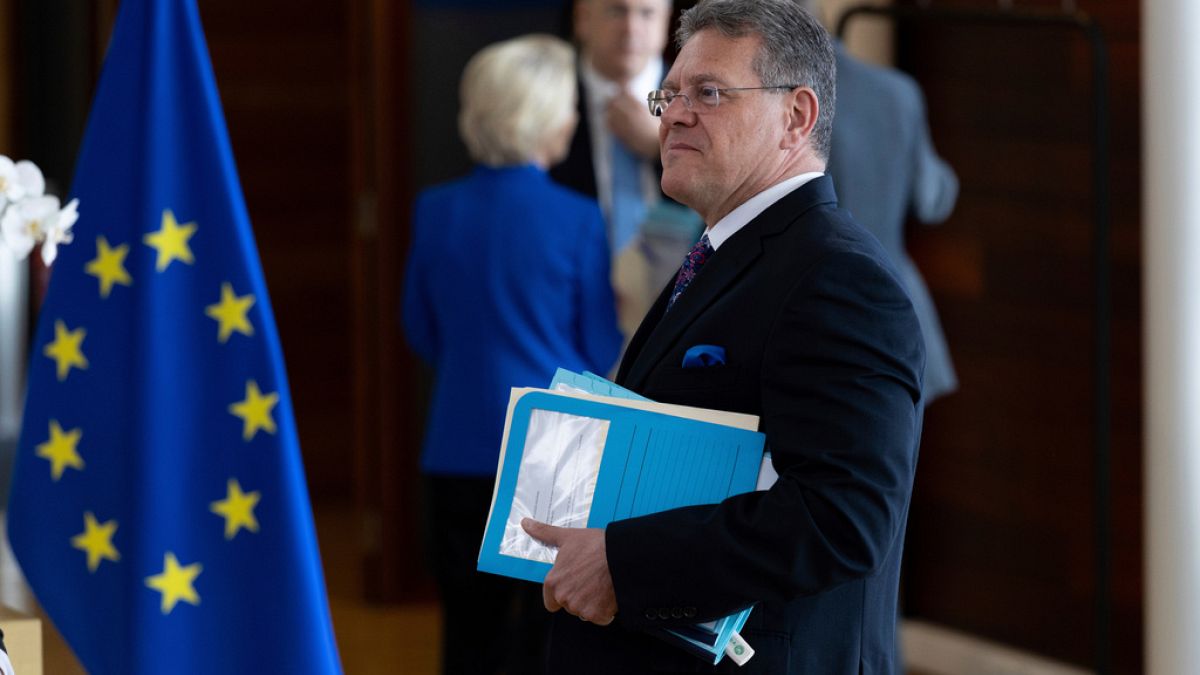
Published on •Updated
EU trade Commissioner Maroš Šefčovič will meet his US counterpart Ambassador Jamieson Greer on Wednesday on the sidelines of an OECD meeting in Paris following a high-level gathering of EU and US experts in Washington on Tuesday against rising tensions over US customs duties.
The Commission is hoping to rekindle negotiation with the US a week after EU Commission President Ursula von der Leyen and US president Donald Trump spoke on the phone, despite Trump’s subsequent decision on 30 May to slap 50% tariffs on EU steel and aluminium.
“The EU in good faith paused its countermeasures on 14 April, to create space for continued negotiations, and following the call between president Ursula von der Leyen and president Donald Trump both sides agreed to accelerate the pace of talks,” Commission spokesperson Olof Gill said on Monday, acknowledging however that Trump’s last announcement on steel and aluminium undermined the Commission’s “ongoing efforts to reach a negotiated solution with the US”.
The Commission has suspended until 14 July a list of countermeasures targeting US products after Trump decided on a 90-Day pause in the trade dispute he launched against his partners across the globe. But the Commission could decide to move forward with those countermeasures, it said.
A second list of US product is also open to consultation from industry until 10 June, when EU member states will adopt them.
“If no mutually acceptable solution is reached, both the existing and the possible additional measures will automatically take effect on 14 July or earlier if circumstances require,“ Gill said.
Šefčovič has already travelled to Washington three times to meet with his US counterparts, but his efforts have so far failed to break the deadlock.
The US and the EU exchanged proposals to begin negotiations, but both sides have dismissed the other’s offers. It wasn’t until EU and US leaders spoke by phone that talks were able to move forward—until President Trump announced new tariffs on steel and aluminium at the end of last week, putting the negotiations at risk once again.
The US currently imposes 25% tariffs on EU steel and aluminium, 25% on cars and 10% on all EU imports. Several investigations in pharma, semiconductors or aircrafts could also lead to more US tariffs on EU goods.
-

 Business1 week ago
Business1 week agoPlastic Spoons, Umbrellas, Violins: A Guide to What Americans Buy From China
-

 Movie Reviews1 week ago
Movie Reviews1 week agoMOVIE REVIEW – Mission: Impossible 8 has Tom Cruise facing his final reckoning
-

 Movie Reviews1 week ago
Movie Reviews1 week ago‘Magellan’ Review: Gael Garcia Bernal Plays the Famous Explorer in Lav Diaz’s Exquisitely Shot Challenge of an Arthouse Epic
-

 Technology1 week ago
Technology1 week agoThe oldest Fire TV devices are losing Netflix support soon
-

 Maryland1 week ago
Maryland1 week agoMaryland, Cornell to face off in NCAA men’s lacrosse championship game
-

 Tennessee1 week ago
Tennessee1 week agoTennessee ace Karlyn Pickens breaks her own record for fastest softball pitch ever thrown
-

 West1 week ago
West1 week agoRiley Gaines says 'literal human feces' thrown in protest of Turning Point USA at University of Washington
-

 World1 week ago
World1 week agoAustralia begins cleanup after floods kill 5, strand thousands


